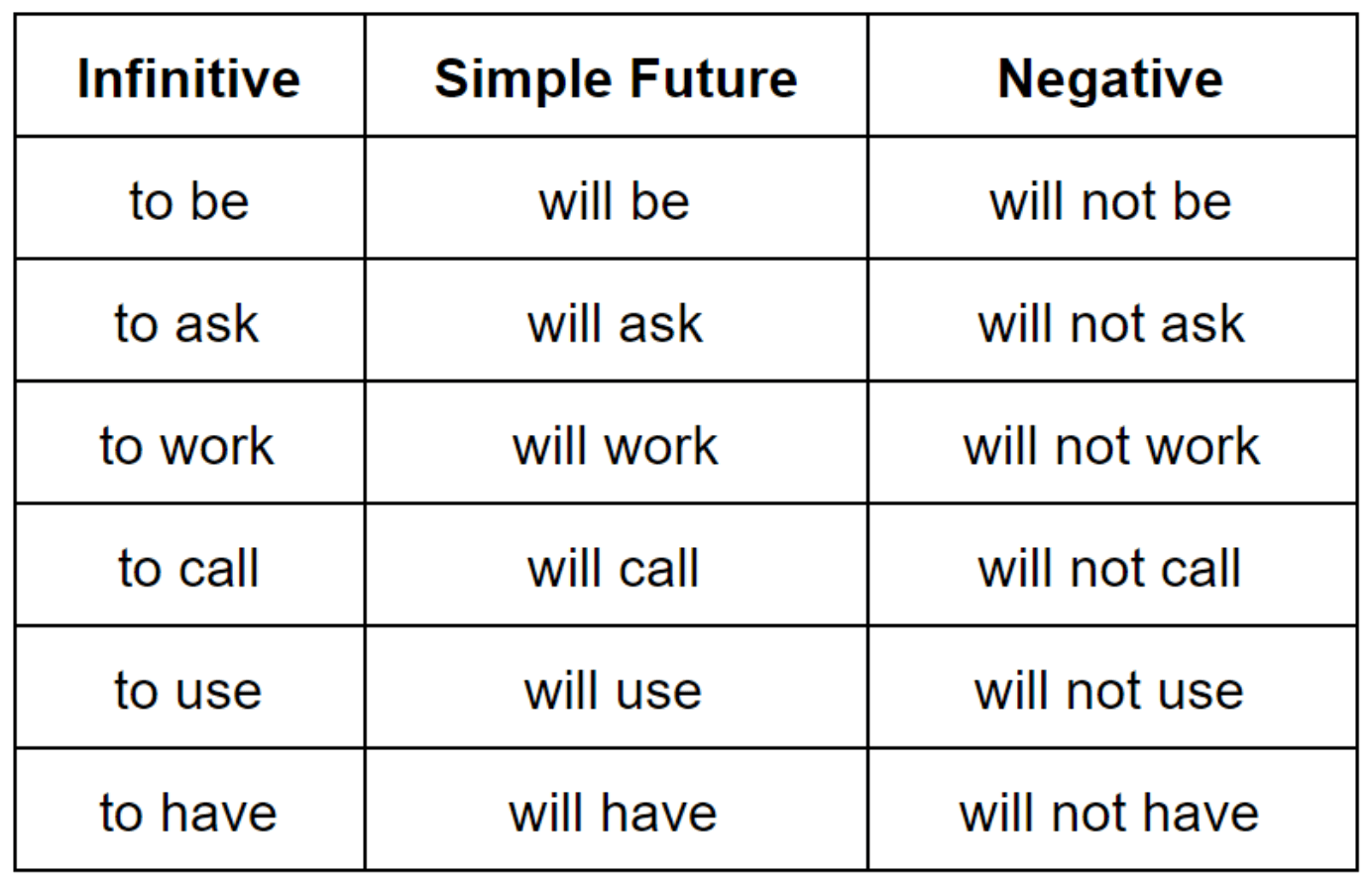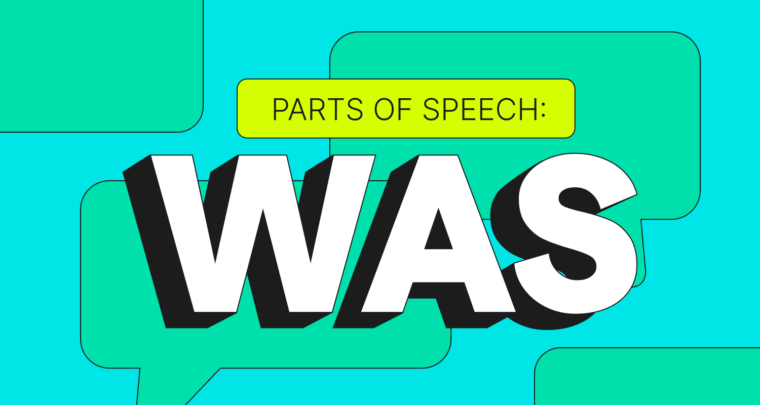
When we talk or write about plans, expectations, schedules, and predictions, we often use the simple future tense. The simple future tense helps convey an action or state that will begin and end in the future:
This year, Safiya will read forty books.
It will be hard, but she is determined to do it.
What is the simple future tense?
The simple future tense is formed using the auxiliary verb will with a main verb. The formula is will + [root form of main verb]:
I will learn a new language.
Safiya will read that book.
My brothers will sleep until noon if no one wakes them up.
You will see what I mean.
As you can see from the above examples, will is conjugated the same way regardless of the sentence’s subject in person or number. Unlike verbs in many other languages, English verbs don’t change form, which is known as a conjugation. The word “will” is the only thing needed to convey that the action takes place in the future. This rule also means that you only need to use the root form of the main verb. They don’t require a suffix like -ed, which connotes an action that happened in the past.
How to use the simple future tense
The simple future in declarative sentences
We use the simple future tense in declarative sentences to state that something is scheduled or planned. It communicates willingness and expresses an expectation, a prediction, or a guess:
The package will arrive next Tuesday.
Frey will perform the lead role in the play.
I will have more information for you the next time we talk.
It will rain before long.
Mei thinks she will hear back about the job she just applied for.
I will gladly show you around town when you arrive.
Making the simple future negative
To indicate that something won’t happen, follow a similar formula but add the word “not” to indicate the negative: will + not + [root form of main verb].
The package will not arrive in time for the party.
I will not finish washing the dishes before I have to leave for class.
Safiya will not quit before she reaches her goal.
Make sure you arrive on time tomorrow because the bus will not wait for you.
They will not tell us anything about their new friend.
Asking a question in the simple future
The formula for asking a question in the simple future is will + [subject] + [root form of main verb].
Will Safiya finish reading forty books by the end of the year?
Will I have time to finish washing the dishes?
What will Arif do with the money he got for his birthday?
Will you go to the movies with me this weekend?
The simple future vs. other future forms
Be going to
Another common way to show that something will begin and end in the future is by using be going to. The be going to construction follows the formula am/is/are + going to + [root form of main verb]:
I am going to learn a new language.
Safiya is going to read that book.
My brothers are going to sleep till noon if no one wakes them up.
You are going to see what I mean.
The be going to construction is similar to the will construction. It’s used to discuss acts or conditions that will begin and end in the future. However, it’s generally more informal and conversational.
Be going to is also more likely to be used when a writer or speaker wants to emphasize a decision they’re making in the present about their intentions, while will is more commonly used for stating a fact about the future:
I am going to see what I can find out about that job for you.
You will get a call from the hiring manager about that job tomorrow.
To make sentences using be going to negative, the formula is am/is/are + not + going to + [root form of main verb]:
Safiya is not going to quit before she reaches her goal.
To form questions using be going to, the formula is am/is/are + [subject] + going to + [root form of main verb]:
What is Arif going to do with the money he got for his birthday?
Present tenses used for the future
In informal English, something that will definitely happen in the future is sometimes described using the simple present or the present continuous tense, while additional context reveals when the action takes place:
My favorite television show airs in half an hour.
Vera is having dinner with Xavier next week.
The future continuous
The future continuous tense ([will be] + [present participle of main verb]) communicates that we expect an action or state to be in progress at a specific time in the future, or that it will begin and then be ongoing:
By the time you read this letter, I will be boarding my train.
After next week, the Kims will be living in a new town.
The future perfect
The future perfect tense ([will have] + [past participle of main verb]) refers to an action or condition that is expected to be completed by a certain time or before something else happens:
Next June, it will have been ten years since the tornado touched down in our neighborhood.
The train will have arrived at the Philadelphia station by five o’clock.
Common verbs in the simple future tense

Simple future FAQs
What is the simple future tense?
The simple future is a verb tense used to talk about an action or state that will begin and end in the future. It uses the auxiliary verb will and a main verb.
How is the simple future tense formed?
The formula for the simple future tense is will + [root form of main verb].
Do verbs within the simple future tense change form based on their subject in number and person?
No. All verbs in the simple future are conjugated the same way—will + [root form of main verb]—regardless of their subject in number and person.
What are some ways besides the simple future tense to talk about things that will happen in the future?
Besides the simple future, there are a few other future forms. Be going to, the simple present tense, and the present continuous tense are all often used in informal contexts for the future. In all contexts, English also has the future continuous text and the future perfect tense.






